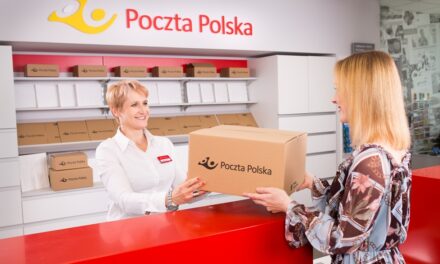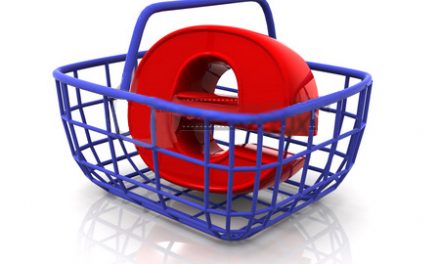
UPS acquisition of Stolica reflects growing attractiveness of Polish parcel delivery market
United Parcel Service (UPS), the global delivery company, announced last week that it would acquire 100 percent in Poland's Messenger Service Stolica for an undisclosed sum, in a move reflecting a growing attractiveness of the Polish parcel delivery market in the wake of EU enlargement.
The market of parcels of up to 35 kilograms delivered on the next day is estimated by the delivery companies themselves to have been worth some ZL600 million last year, with about 40 million parcels shipped. The largest player on that market last year was DHL Express Polska (created by the consolidation of Deutsche Post's DHL and Servisco businesses) with estimated 25-percent share. Stolica was close behind with 22 percent, and Masterlink was third with 12-percent share. UPS had an estimated 5-percent share in the up to 35 kilograms next-day delivery parcels market in 2004, on par with TNT, Spedpol, and the Polish Post's Pocztex. Szybka Paczka had 9 percent.
Table. Parcel delivery market (percent)* DHL/Servisco 25 Stolica 22 Masterlink 12 Szybka Paczka 9 UPS 5 Spedpol 5 Pocztex 5 Other 12 */ up to 35 kg, delivered next day; source: Rzeczpospolita, Masterlink
In the segment of city and express parcels (delivered on the same day), worth some ZL27 million, Stolica was the leading player last year, with an estimated 25-percent share.
In international shipments, Stolica's share was insignificant as it had started providing such services only recently. UPS, in turn, had about 25 percent in the estimated ZL160 million market last year.
The acquisition, which is expected to be cleared in early second quarter, will make UPS a leading player in most market segments. The value of the deal has not been disclosed, though some guidance is offered by the fact that when the VC/private equity fund Enterprise Investors acquired 43 percent in Stolica in 2002, it paid $10.3 million, valuing the whole company at $24 million. That would value it today at ZL100-150 million.
But the EI investment also proved a source of problems for Stolica, after the fund alleged that the 2000/2001 figures on the basis of which the company had been valued were pumped up by a doze million zlotys, an allegation the company's management rejected. The management refused to agree for the company's books to be verified by an independent auditor, arguing the costs would be too great. Several court suits were filed.
Meanwhile, Stolica's business suffered. The company lost ZL10.8 million in 2003 on sales of ZL184 million, down from ZL187.6 million in 2002, and that was clearly one of the reasons why the conflicted shareholders finally reached a compromise.
Table. Stolica sales and earnings (million zlotys) Year sales net income 2001 175 9.4 2002 187.6 11.2 2003 184 -10.8 2004 196 n.a. 2005* 208 6.9 */ forecast; source: Rzeczpospolita
The parcel delivery market grew by a double-digit rate last year, though growth was not evenly distributed: it was strongest in the two months directly preceding Poland's EU accession, when companies saw volumes double or even treble on the previous year. After that, growth subsided, though still remained robust.
UPS, for instance, estimates that the number of parcels shipped from Poland in May-December 2004 was up 35 percent on the same period of the previous year.
"The traditionally expected rise in fourth-quarter volumes was slightly weaker than in the previous years. The Polish market has matured," said Rafal Dziura, director at TNT Express Polska.
Poland's EU accession, the opening of borders, and VAT changes have made the Polish market more attractive for western companies, and the neighbouring markets more attractive for Polish ones.
"That is why the Upper and Lower Silesia areas have become very attractive for many customers as a basis for distribution centres from which you can conveniently operate on the markets of Germany, Austria, Czech Republic, Slovakia, or Hungary. This has increased the significance of logistics operators operating large European networks and being able to guarantee fast delivery to any part of the continent," said Dziura.
Poland has also become an increasingly important market for mid-sized German companies, facing stagnation on their domestic market and robust growth in Poland and the other new member states. Volume growth has been particularly strong on the Western Europe-Poland-Baltic states route.
"Poland's EU accession has boosted demand for international road transport. The removal of border and customs controls has not only shortened delivery times but also had a favourable impact on competitiveness. We've been transporting more and more single parcels instead of full truckloads. That requires more effort but also generates higher margins. We're counting on strong growth in supplies from our traditional customers, the car parts manufacturers operating in Poland," said Aleksander Morozowski, chief executive of DHL Express.
The opening of borders and robust growth in traffic has coincided with an oversupply of transport services, causing small and medium-sized companies to cut freight rates sharply, prompting allegations from large operators of price dumping.
"Polish-Polish competition has intensified sharply since May 1. There are too many international transport companies in Poland. Many are competing unfairly by cutting freight rates below their costs. The market is distorted. In the near future many insufficiently geared companies will either collapse or go off the market or merge with others to withstand competition. As many as one in three international transport companies could go off the market in 2005," said Jan Dalgiewicz, chief executive of Peakes Group, which went public late last year.
Some 90 parcel delivery companies operated in Poland last year, up from 55 in 2003, and most of the newcomers were small, local operators. The major players controlled an estimated 85 percent of the market, operating 557 branch offices and employing 6,000 staff and a further 9,000 collaborators (i.e. couriers).
Table. Leading logistics companies (2003 sales, million zlotys) Company capital sales Raben Group foreign 502 DHL Express foreign 487.8 Spedpol mixed 407 Schenker mixed 227 Stolica domestic 183 Vos Logistics mixed 176.6 Frans Maas Polska mixed 131 Masterlink foreign 90 Siodemka domestic 44.7 source: Gazeta Prawna
– Halina Brdulak
Warsaw School of Commerce
EU enlargement caused international road transport companies to adopt various operating strategies. Some decided to shift their business eastwards, beyond the EU border, where quality requirements remain lower than in the EU. Others focused on cabotage services between the EU countries. Still others developed capital ties with foreign companies.
The introduction of operating licences restricted domestic operators' access to the TSL market. There was a sharp rise in international licences, which caused an oversupply of international transport vehicles with a deficit of qualified drivers. That deficit was also caused by the coming into effect of the AETR agreement on drivers' working time and the implementation of strict domestic control procedures, which required operators to provide two drivers per truck on long-distance domestic routes and international ones. That has boosted domestic operators' costs, though generally they are still lower than those of the EU-15 companies. Price pressures have been mounting, and foreign freight costs have fallen by 10-30 percent. Polish logistics operators have seen growing competition from Baltic rivals. Access to the EU market became easier as a result of the removal of border controls and reduction in bureaucratic procedures. Capacity utilisation has increased by 20-40 percent. – Robert Mianowski
general director, TNT Express
When customs barriers were still in place, parcel delivery companies guaranteed swift shipping of goods by road or air, but, equally importantly from importers' point of view, also took charge of customs clearance. The removal of customs barriers has caused that significant advantage to disappear. 70-75 percent of parcel traffic takes place in the EU. This segment of the market has suddenly gained a wider choice. The customers suddenly found out after May 1, 2004 that the time that parcel delivery companies had offered them with customs clearance could now be achieved at fraction the cost with road transport. That is why delivery companies may be affected by market volatility. Customers will soon return to the conviction that they must not waste the time saved on customs clearance by entrusting transport to the slower operators, because market pressures are growing.












